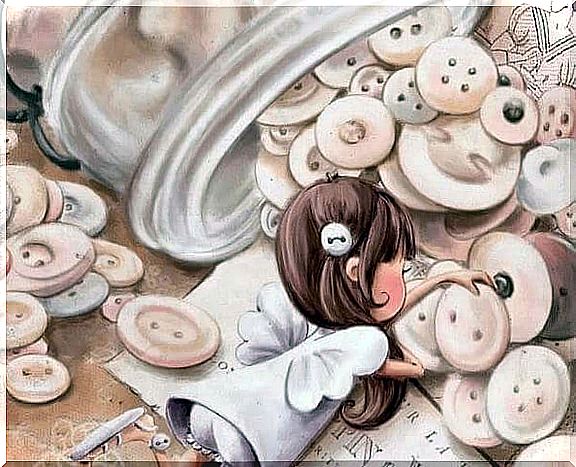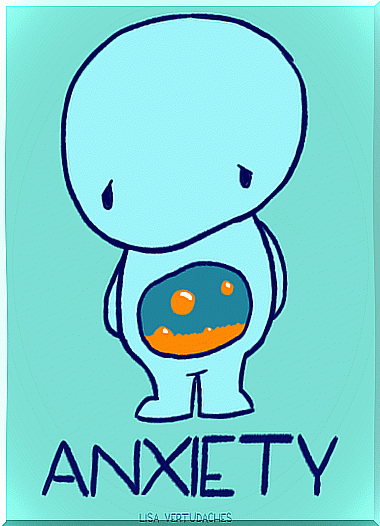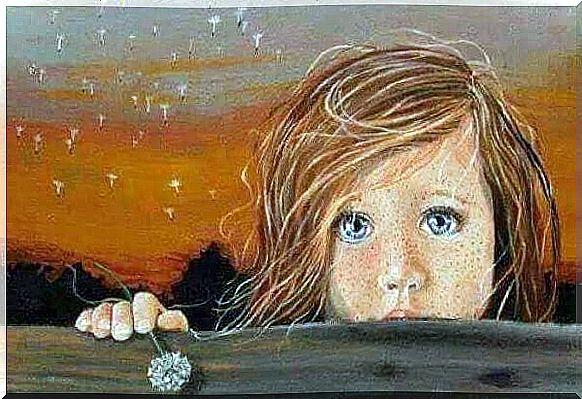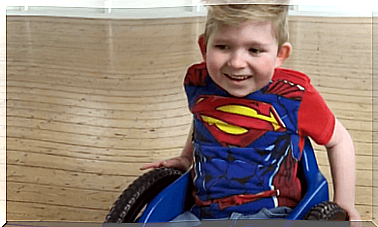It’s Hard To Be A Child In A World Full Of Tired Adults

There is no such thing as a difficult child. What is difficult is being a child in a world full of tired adults, who are busy, impatient, in a hurry. It is parents, teachers and caregivers who often forget one of the most important obligations involved when raising children: giving them adventures.
This problem is so real that we show concern when a child is simply restless, noisy, happy, emotional, colorful.
It is normal for children to run around, fly, shout, experiment and turn their circumstances into an amusement park. It is normal for children, of all ages, to be just the way they are, and not how adults want them to be.
But for this to happen, two basic things must be understood:
- Movement is not a disease. We want a self-control that neither nature nor society encourages.
- We do the children a favor when we let them get bored and avoid overstimulation.

Why do we medicate our children?
Although it has become trendy in health and education, the incidence of ADHD ( attention deficit hyperactivity disorder ) is quite questionable, at least in the way it is perceived. It is currently used as a “catch it all” concept, where various issues are collected, ranging from neurological problems, to behavioral problems, to lack of resources, to inability to manage oneself in one’s environment.
The statistics are overwhelming. According to data from the Diagnostic and Statistical Manual of Mental Disorders IV-TR (DSM-IV-TR), the incidence of ADHD in children is 3 to 7 cases per 100 children. What is worrying is that the underlying biological hypothesis is nothing more than a hypothesis, which they are trying to confirm by trial and error, with reasons such as “it seems that this is happening because…”
In the meantime, we over-medicate our children because they exhibit disruptive behavior, because they do not follow, and because they do not seem to think before performing a task. This is a delicate subject, so it is necessary to be especially careful and responsible by consulting good child psychiatrists and psychologists.
At this point, we should point out that it is not a clinical or psychological examination that objectively determines the existence of ADHD. In fact, these tests are based on impressions and performance in various tests. The diagnosis is based on how long it takes to perform the tests, and the subjective impression of them. Disturbing, isn’t it?
We do not know what the consequences of these drugs will be, let alone excessive use of them. These medications only reduce the symptoms, but they do not reverse the “disorder” in any way.

It seems completely wild, so why does it keep happening? One of the reasons is probably economics, as the pharmaceutical industry brings in billions of dollars thanks to the pharmacological treatment of children. And there is also the philosophy that “it is better than nothing.” The self-deception of the “happiness pill” is a common factor among many diseases.
By setting aside, we should step down and realize that it is actually us adults who are ill, and that the main symptom is the poor management of education policy and schools.
More and more specialists are becoming aware of this, and are trying to stop parents and professionals who feel the need to blame ADHD for problems that often have more to do with the environment and the lack of opportunities that children have to release their abilities.
As mentioned by Marino Pérez Álvarez, a specialist in clinical psychology and professor of Psychopathology and Intervention Techniques at the University of Oviedo in Spain, ADHD is nothing more than a label for children’s problematic behaviors that have no solid scientific or neurological basis. , as opposed to how they tend to be presented. It is an unfortunate label that includes difficult but common problems.

“It does not exist. “ADHD is a diagnosis that has no clinical weight, and the medicine does not treat [our children], it dopes down [them],” says Marino. The idea has spread that neurochemical imbalances cause various problems, but it has not been determined whether this is a cause or consequence. In other words, neurochemical imbalances can also be due to one’s relationship with the environment.
The right question would be: It is important to be critical and take a look at the world, which promotes cerebro-centristism and searches for physical causes of everything without stopping to think about what is the cause and what are the consequences. Maybe we should look at how we build society and what scientific evidence there is.
From that point on, we should ask ourselves what are the needs and strengths of each child and each adult who is likely to be diagnosed. Taking an individual approach will result in better health and well-being, both for children and for society in general. So the first thing we have to do is criticize ourselves.









